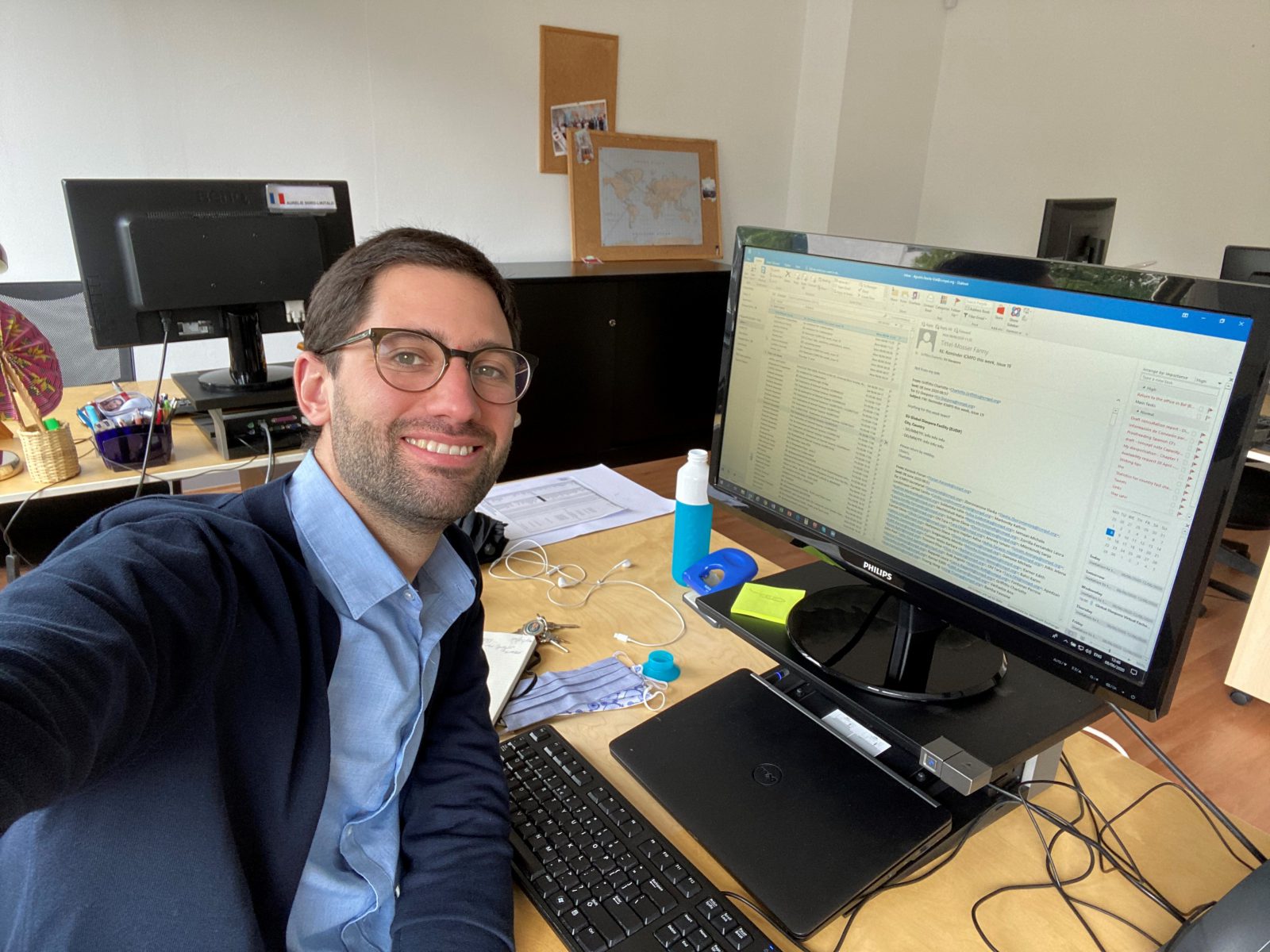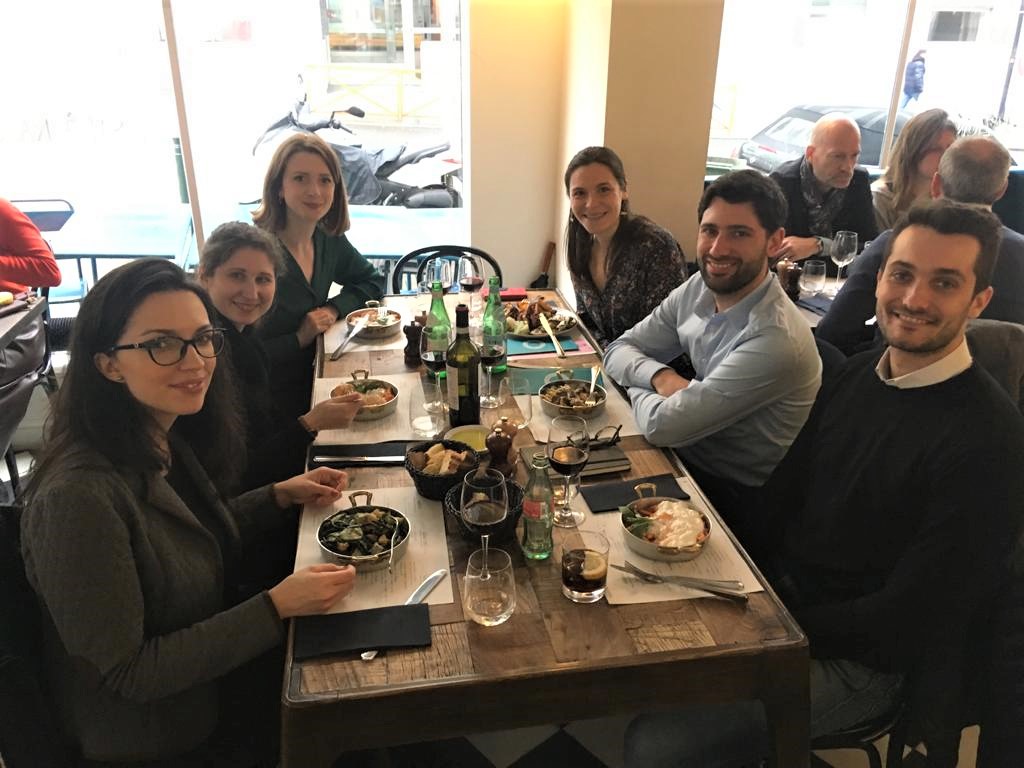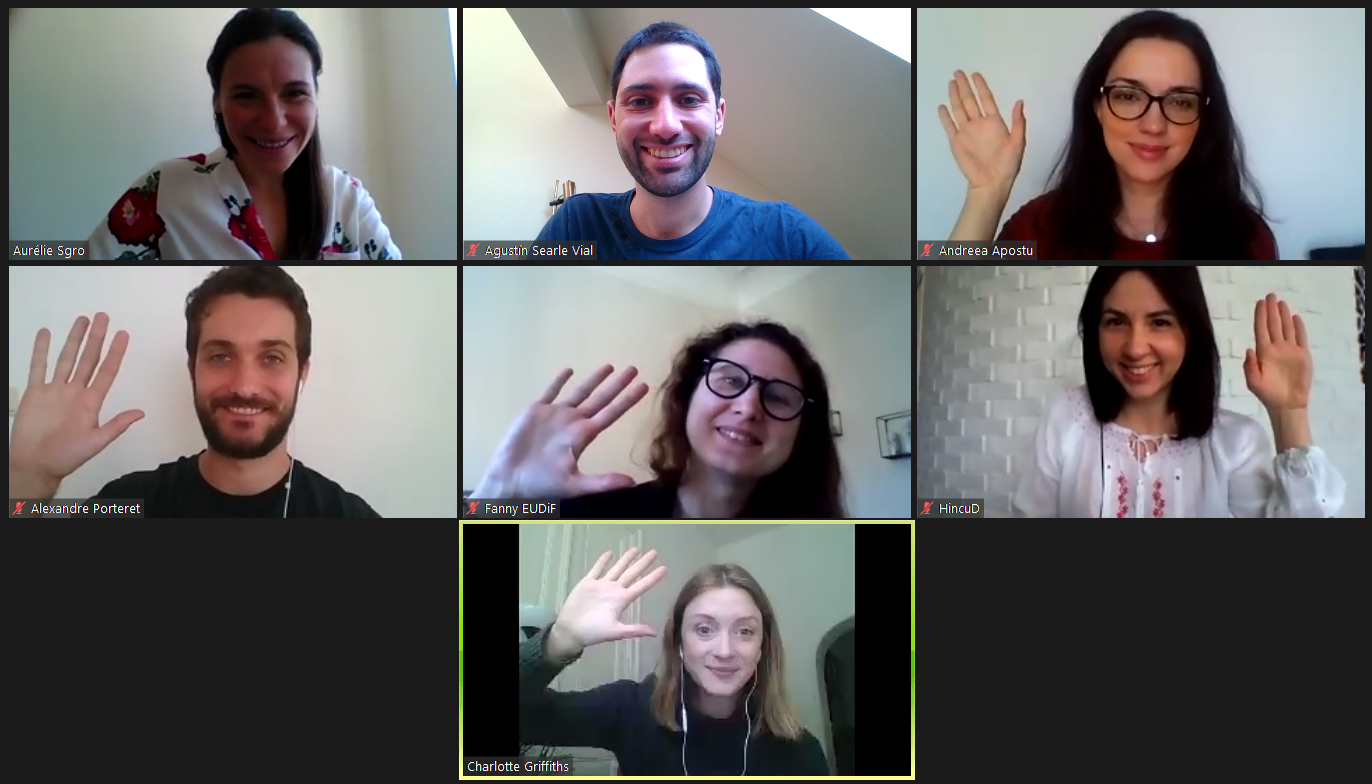
As EUDiF recruits for the second round of its diaspora youth internship, Agustín Searle-Vial, our first intern, hailing from Chile, reflects on the unexpected twists and turns of his five months with the project.
I started my internship in March 2020 in Brussels with huge expectations: I finally had the chance to work in a major international organisation on topics I am passionate about. Little did I know my internship would be very different than expected due to an unprecedented pandemic. Nevertheless, these circumstances shaped my experience in a stimulating and fascinating way, teaching me valuable professional lessons whilst I worked on migration and diaspora from a new perspective.
I became a diaspora member myself while studying international relations in the UK. Not only am I a Chilean emigrant, but I genuinely feel a strong link to my homeland and my Latino heritage. In a way, I am a representative of my country abroad. I hope that my studies and work experience in Europe will help me to contribute to Chile in the future. For this reason, when I saw the vacancy for an internship at EUDiF, I was really excited. It looked like the perfect opportunity to continue developing my career in migration and start working on the development side, which was completely new for me. Before studying in the UK, I had worked with diaspora communities in Chile, but now the tables were turned: I was working as a diasporan in Europe.
I fell in love with the project from the beginning, as I saw it as a concrete action to empower diasporas in Europe. EUDiF’s raison d’être is based on the importance of diasporas as agents of development, not only through remittances but also because of their human, social and cultural richness. I particularly value the project’s multi-stakeholder and participatory approach, since it gives a real sense of inclusion, aiming to involve the usual – and not so usual – suspects. Moreover, as the internship programme falls under the ‘diaspora development expertise’ component, I am happy to be part of a project that recognises the potential of and invests in the professional development of youth diaspora members like me.
My identity as a Latin American emigrant, and part of the diaspora in the EU, has allowed me to contribute with my distinctive personal insights and knowledge on the region and my experience working with diasporas. As the internship is designed to be a ‘structured mentorship’ I have been involved in all the processes and components of the project. This has made it a special learning experience via which I could explore different elements of project implementation – from communication, to research, to dialogue facilitation. During my internship, I was particularly interested to take part in the first-ever global diaspora engagement mapping, gathering statistics and information and learning about diaspora communities and engagement around the world.


Learning from diasporans
I have been interacting with migration and diaspora most of my life. I was born and raised in Chile, a migrant-receiving country over the past three decades. After finishing my law studies, I worked for the Legal Aid Corporation providing weekly legal assistance to migrants coming from Colombia, Ecuador, Haiti and Venezuela, among others. This experience motivated me to continue working with diaspora communities in a small non-profit organisation generating assistance networks by providing aid and advice in legal, health, educational and social matters.
Initially, I worked with what I now see as a short-term mentality, focused on protecting migrants’ rights and supporting their integration into Chilean society. However, I struggled to see the bigger picture: what happens after regularisation? Are migrants solely seeking to settle and integrate in their new countries? I did not weigh the importance of the connection between migrants and their homeland. However, a conversation with a Venezuelan law student of my age changed the way I perceived migration. I remember asking him if he wanted to settle in Chile for good. “No”, he answered, “I want to go back – I want to help my people back home.” It was then that I discovered how important it can be for migrant communities to not only integrate in the host country, but also to maintain links to their homeland and get involved in its development. Sometime down the line, the memory of this conversation drew me to EUDiF.
Pandemic and new challenges
The COVID-19 pandemic changed the global landscape drastically, and my internship was no exception. After only two weeks working at the ICMPD’s Brussels office, we switched to teleworking – not what I was expecting when I started!
Doing an internship during a pandemic taught me that – in Freddy Mercury’s words – the show must go on. Despite the confinement, travel bans and resulting suspension of several activities, EUDiF has a strict timeline to follow. The pandemic not only challenged me, but my whole team to readapt our tasks and adjust our activities to the ongoing situation.
We successfully transformed a two-day interactive workshop with diaspora organisations in Western Europe into an online consultation. This was quite a challenge considering that one of the fundamental elements of EUDiF is to encourage networking with and between diaspora organisations. Although not the foreseen set-up, it was nice to see the enthusiasm of diaspora representatives sharing their experiences, not only in how they have managed to cope with and respond to the COVID-19 crisis, but also in their challenges when working with and for their countries of origin.
However, from a more personal point of view, it has been an emotionally demanding period. As a migrant living in Belgium, the pandemic has more than ever increased the feeling of homesickness and isolation. All this in addition to the uncertainty of the future and the difficulty in picturing long-term goals. I realised that these challenges are shared by fellow diasporans in Europe since the new measures complicate integration in host countries. Moreover, confinement prevents migrant communities from getting together – crucial for the work of diaspora organisations.
Despite this, I was impressed to learn how diaspora communities in Europe have come up with incredible initiatives in response to the coronavirus outbreak. In France, a Peruvian diasporan teamed up with an organisation fighting extreme poverty in Latin America to create a COVID-19 FAQ page, displaying information and best practices on disadvantaged communities can protect themselves. In Italy, Latin American health workers have been on the front lines facing this ruthless virus, saving the lives of their now Italian neighbours. These examples motivate me to play my part as a Latin American diaspora member working for development.
Despite the strains during these bizarre times, I gained a new sense of professionalism. Unexpectedly, I feel I have, in part, to thank to the pandemic, which redefined my personal and working expectations. I have learned that, even in adverse circumstances, it is possible to make the most out of an experience. I would really recommend this internship for anybody looking to contribute one’s own knowledge and personal experience as a diaspora member in the EU whilst gaining valuable experience working in an international organisation. It is enriching to participate in a project in which you feel you act as an ambassador of your country of origin, region and community. I hope that the next intern will have more time in the office with the team than I did, but just as much insight into migration and development and the growing momentum in diaspora engagement for development.